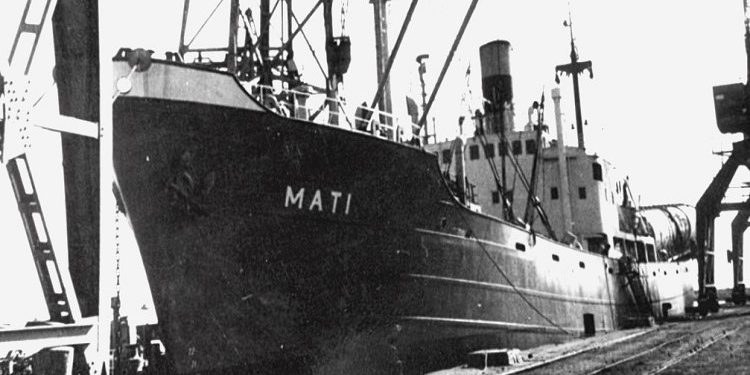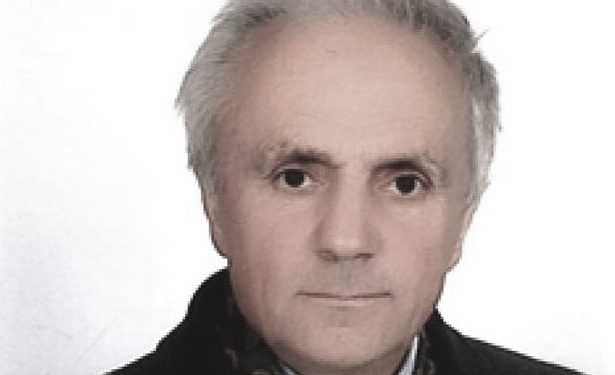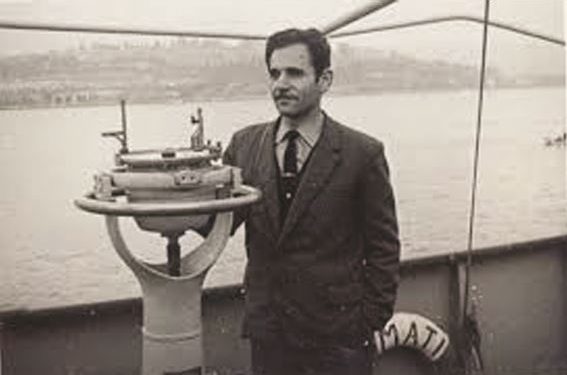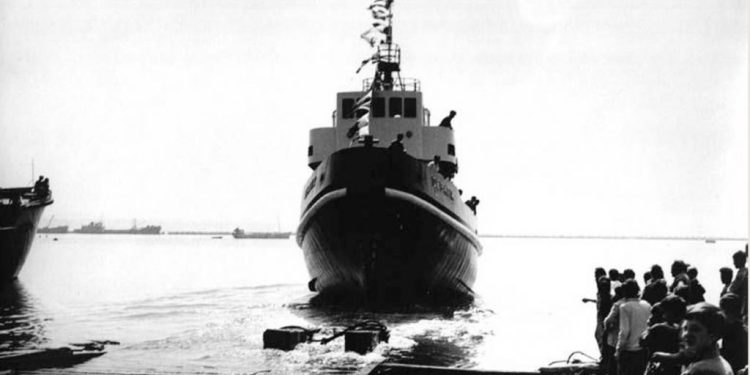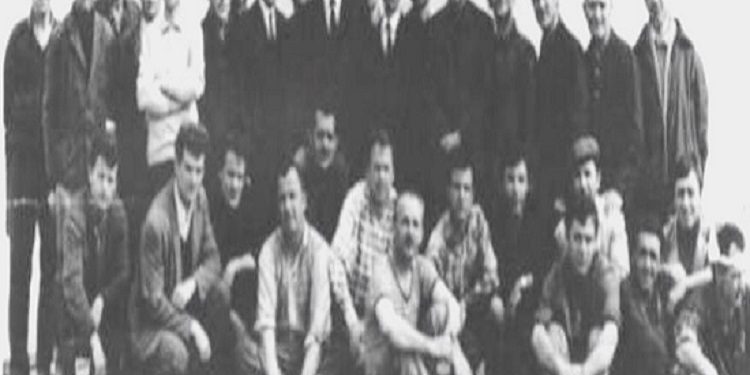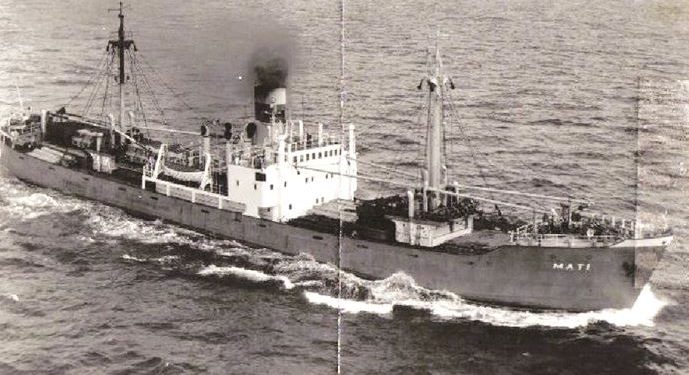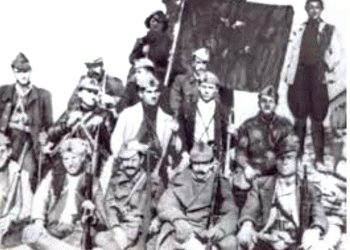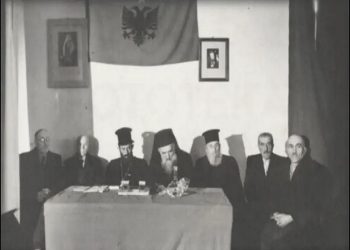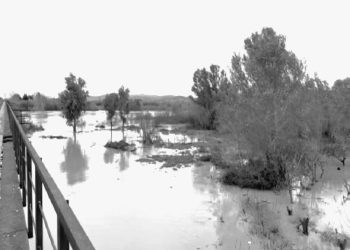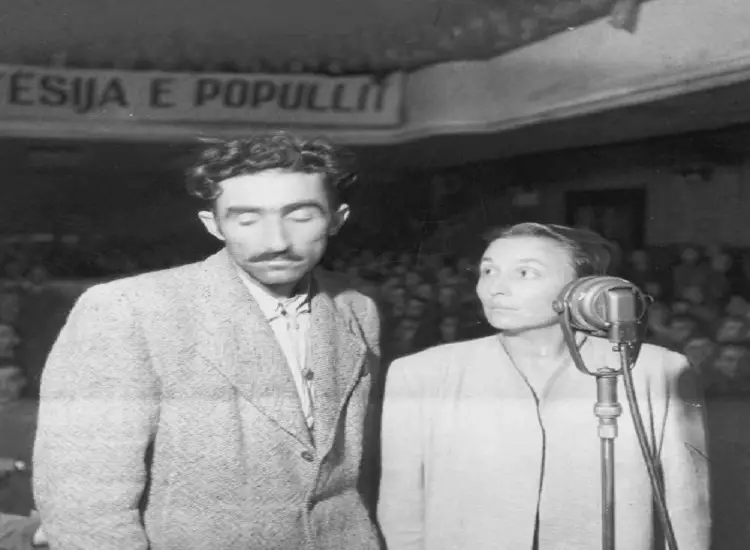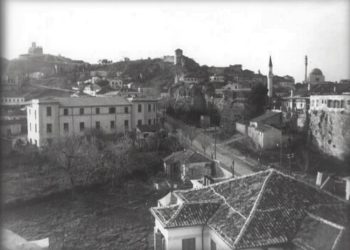Part Two
Memorie.al / On October 16, 1976, around 4:00 PM, the postman of the Bucharest PTT service brought a telegram to the embassy. The third secretary of the embassy, the late Osman Osmani, who received the postman, immediately brought this telegram to my office; I noticed great concern on his face. He gave me the telegram and, shaken, told me: “Comrade Ambassador, the steamship ‘Mati’ has sent an ‘SOS’ (save our souls).” I quickly read the telegram; it was written with the letters of the Romanian alphabet, but the content of the words was Albanian. The telegram said: Extremely Urgent, Albanian Embassy Bucharest: “On the evening of October 12, we arrived at the Constanța roadstead. The steamship suffered a serious malfunction; the rudder blade broke.
PASSPORT
- “But,” the general said, “if you want, you can see the two people captured by the army’s coastal guard.”
- “Let me go with Shyqo to see them,” Osmani said to me, “because I have a feeling they are Albanian sailors.”
- “Go,” I told him, “but take a Romanian escort with you, to make it easier to enter the military zone, as it’s also nighttime.”
So it was done; they left in our car, while I stayed in the port offices. In a short time, Osmani called us and said that the two people captured by the Army’s Coastal Guard were both sailors from the ‘Mati’ steamship. I spoke with them directly, and they told me that the ship ‘Mati’ had broken in the middle and was split into two parts.
The two sailors told me that when the signal “Man overboard” was given, we jumped with life jackets, but as soon as we hit the water, the waves were so strong that they stripped the life jackets and clothes from our bodies, and the waves pushed us close to the shore and then brought us back again near the ship.
“To get to the shore by swimming, we suffered a lot, as you can see; we have wounds on our faces and bodies. Our ship,” they said, “is not far from the shore, it’s about a mile. The storm has thrown it between two rocks, and it seems to have settled. The stern is on the side of the shore, and the bow is facing the sea, while the crew has all retreated to the stern. The ship has no connection to the land, and from moment to moment, it might even capsize.”
“As soon as we came ashore,” they said, “the Army’s Coastal Guard captured us. The soldiers gave us a greatcoat because we were naked and brought us here where we are now. Two nurses treated us, who rubbed our bodies with alcohol, because we were half-frozen from the very cold seawater. Our tongues were also frozen in our mouths, and we couldn’t speak a single word. Only God knows how we survived.”
“The two sailors,” Osmani told me, “are young, about twenty-five years old.” This is what Osmani told me, from the conversation he had with our two sailors.
The Port Authority
The port authority announced that a tugboat could not enter the area where the ‘Mati’ ship was now located, because of underwater rocks. Meanwhile, it was one o’clock on October 17, so there were five more hours until 6:00 AM for the helicopters to intervene from the air to bring the ship’s crew ashore. For everything, we maintained contact with Albania and informed them about every intervention we made. An operator from Tirana did not disconnect the office where we were in Constanța.
Meanwhile, in Tirana, at 12:00 AM, the Romanian ambassador Ion Stojan was summoned to the Ministry of Foreign Affairs and was handed a note by Deputy Foreign Minister Ksenofon Nushi, protesting vigorously against the lack of rescue assistance from the Romanian authorities for the crew of the ship ‘Mati,’ which had sent an ‘SOS’ in the Constanța roadstead. I called Osmani by phone, asked him to send the car with Shyqri, and went to where our two sailors were.
There was a military checkpoint, and we asked if they could help us connect with the ship, which could be seen from the shore, as it was not far. Our driver, who was chatting with the soldiers, smoking cigarettes with them, was told by a communications soldier: “I’ll connect you with the ship.” The soldier said he would make the connection with the ship using improvised means, as long as there was a radio operator on the ship who knew the ‘Morse’ code.
The Romanian soldier told our driver to turn our “Benz-Mercedes” car in the direction of the ‘Mati’ ship, which was in front of us. At that time, the rain had stopped. With a military blanket, the Romanian soldier covered and blocked one of the car’s headlights. He got into the car in the driver’s seat and started flashing signals with the lights in the direction of the ship.
The crew of the ship, who were impatiently waiting for help from the land, understood that someone from the shore was trying to connect with them, and with a small electric lamp with a battery, from a window inside the ship, they began to give signals in the direction of the shore. At this time, the Romanian soldier started writing something on a piece of paper, which he didn’t understand what it said, because the content was in Albanian. So he passed it to us to look at.
They were asking: “Who are you?” We replied: “We are the embassy, tell us if you are all well?” The soldier transmitted what we wrote to him without difficulty, because both the Albanian and Romanian alphabets are Latin.
They replied to us that; we are all well, with no casualties, but we do not know the fate of the two sailors who jumped into the sea?
We replied: “Your two comrades who jumped into the sea have made it to shore, and they told us that the ship ‘Mati’ is broken in the middle. We informed them that soon your rescue from the ship will begin with helicopters.”
They were very happy with this news, but they asked for the helicopter intervention to start as soon as possible, as you never know with the sea; it could capsize us from one moment to the next. We knew the exact time when the helicopters would go over the ship, but we didn’t tell them, because they had to wait another three hours. These were three hours of terror; the rain had stopped, but the sea continued to be very rough.
The Rescue Helicopters
After we were sure that all our people on the ship were safe and sound, we were immensely happy, we cheered and calmed down a bit, so to speak, we recovered, but still with the fear that the ship might capsize from the strong hits of the sea. By exchanging conversations by the sea with ‘Morse’ code, with the crew of the ship, time flew by, and at about five o’clock, dawn broke; movement began to enliven and everything looked clear.
At exactly six o’clock, we heard the deafening noise of the powerful engines of two French-made “Puma” helicopters, which rose so suddenly from a runway, very close to us. After they rose to a certain height, they performed an observation flight, and one of them began to release ropes holding a metal seat at the end. Then it began to descend little by little onto the ‘Mati’ ship, until the seat touched the deck of the ship.
We saw that a sailor sat in the seat, tied himself securely, and signaled with his hand that he was ready for flight. Meanwhile, the helicopter lifted off and brought the sailor to the shore, landing him 100 meters away from us. While the first helicopter was detaching from the ship with the first sailor, the second helicopter landed on the ship, which took another sailor, and this continued until the last one to leave the ship was the captain of the steamship.
This job, to get all 37 people who made up the crew of the ‘Mati’ steamship to land, lasted about three hours, and everything was filmed by photojournalists from television and newspapers, at a time when this work could have been done in two flights, because the helicopters had a capacity of 25 people; they were army assault helicopters.
The Survivors
Why did they take them out one by one and why did they film them with such ceremony? It seems this was done because they thought that the issue of compensation for the ship would go to the International Court of the Sea, and as a defense, the intervention from the air with helicopters could be used, even though this help was delayed. But thank goodness the ship was thrown between two rocks and did not move from that place.
After the ship’s crew had all gotten ashore and we met them one by one, we took them in a bus and brought them to a clothing warehouse in Constanța. They got dressed, as they had left the ship with their work clothes, because their clothes, luggage, and all their personal belongings had remained in the part of the ship that was covered by water.
After this, we had lunch and sent them by train to Bucharest, accompanied by the late Osman Osmani, while I, with Shyqo, returned by car to Bucharest that same day. Upon arriving in Bucharest, the crew of the ‘Mati’ steamship was met at the “Gara de Nord” train station by the commercial counselor of the embassy, Simon Poreci, and the first secretary, Idriz Shehu. They took them to the embassy, where they rested and were treated to a feast, as is the Albanian custom. Then they were placed in a hotel, where they stayed until Wednesday, when we sent them to Tirana on the “Tarom” airline.
COMPENSATION
London, the place where the ship was insured
The ship ‘Mati’ and the goods were insured by the People’s Republic of China, in London, with the insurance company Lloyds. China did not object at all to the payment or compensation for Albania and immediately signed the check, without even discussing the issue of who was at fault, because this would lead to a quarrel between Albania and Romania.
What happened to the steamship ‘Mati’ might not have happened if the Romanian side had come to the ship’s aid at the moment the rudder blade broke, when the ship’s captain, Adem Jaupi, informed the Romanian port authorities about the serious malfunction the ship suffered in the Constanța Roadstead.
If the port authority of Constanța had sent the tugboat to pull and bring the ‘Mati’ steamship to the quay at the moment the malfunction occurred, the steamship would not have suffered anything, because the storm had not yet begun.
THE CATASTROPHE
How the event could have been avoided
This event might not have happened at all if the captain of the steamship ‘Mati,’ upon discovering the breaking of the ship’s rudder blade, a very serious malfunction, and when the port authorities of Constanța did not come to the ship’s aid urgently, had not stayed in the roadstead, but had entered the port directly, to one of the quays, wherever he could.
For this, at most he might have been fined by the port authorities for entering the port without permission and nothing more. But he certainly would not have paid the fine, because with that serious malfunction that the ship had, unauthorized entry into the port is justified in such cases, even by force, because it was a line ship and the port of Constanța, based on the Albanian-Romanian bilateral agreement, was obliged to accept it and bring it to the quay as soon as possible.
Besides this, the captain should have at least informed the embassy as soon as possible, at the very moment the malfunction occurred, and we would have gone to their aid quickly, as we did in two hours, and we would have brought the ship into the port with urgency.
But to be clear about one thing, the captain of the ‘Mati’ steamship was a brave man and sailor; he was well-prepared, having completed higher education at the Merchant Marine school in the Soviet Union for ship handling.
He had crossed seas and oceans with Albanian ships and could have entered the port of Constanța without permission, even by force, but it seems he thought to avoid the fine and did not suspect that the storm would be of that magnitude, so fast and so powerful.
In conclusion, after Albania received the money for the ‘Mati’ steamship from the insurance company “Lloyds,” it added more money and bought a 16,000-ton steamship in the Federal Republic of Germany, which it christened with the name “Arbëria.” With that, this event was closed.
HELP
China’s goals
The question arises, why did China act so quickly and prevent a quarrel between Albania and Romania at that time, over the ‘Mati’ steamship? China did this because it was working at that time to create the “Albania-Romania-Yugoslavia Triangle” in the Balkans, and it thought that this would one day be achieved, seeing the anti-Sovietism of these three Balkan countries.
Romania and Ceaușescu at that time liked this policy of China and enticed it with all sorts of friendship declarations. In fact, Hua Guofeng visited Yugoslavia and Romania shortly after.
PASSPORT
“Mati” was transporting cognac, brandy, and cigarettes!
The ‘Mati’ steamship was a five-thousand-ton vessel, manufactured in Gdańsk, Poland. In its holds, it had four thousand three hundred tons of goods: bitumen in barrels, cognac, brandy, and cigarettes. In general, Polish ships withstand the sea well because they have a wide draft, and our sailors had gone with this ship as far as China, Cuba, etc.
It was a very strong ship, and our sailors were very sorry when they abandoned it on the shores of Constanța in the Black Sea, which got this name not because it is black in color, because as a Russian song says, it is the bluest sea in the world, but because in this sea, great misfortunes have occurred over the years; it has swallowed many ships and human lives. /Memorie.al




